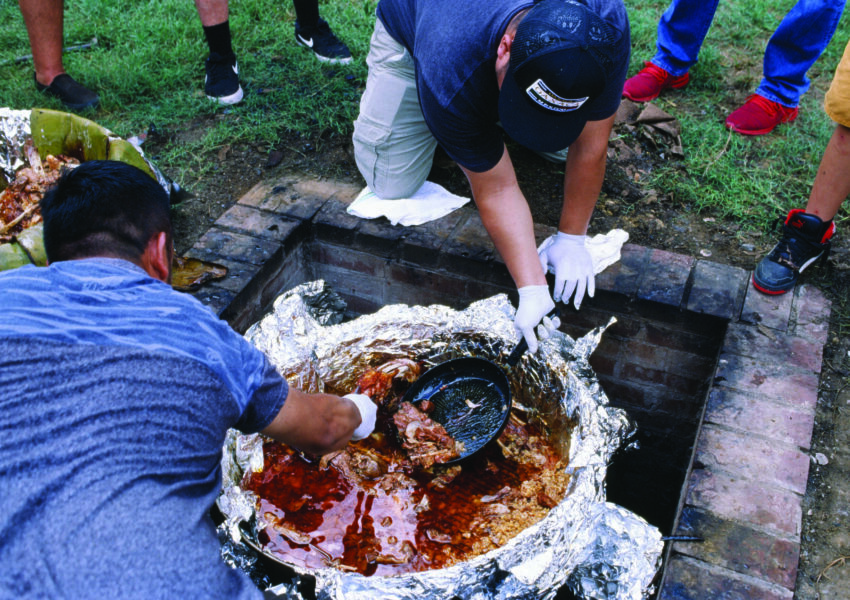A LIFETIME OF BARBECUE IN SELMA Pulled pork with a side of civil rights history at Lannie’s
by Meredith Bethune (Gravy, Fall 2016)
Photos by Jerry Siegel
Plates heaving with thick strands of smoked pork and topped with a single crackling are synonymous with Lannie’s Bar-B-Q Spot in Selma, Alabama. They’ve been serving it that way for nearly seventy-five years. Locals flow in and out of the low-slung brick building, picking up to-go orders. A photo of founder Lannie Moore Travis, who passed away in 1994, hangs above vinyl-cushioned booths.
![]()
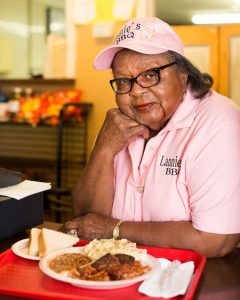 Current owner Lula Hatcher is Travis’s daughter. Now in her eighties, she used to watch her mother, who was born in 1915, make that sauce on the stove. Lannie’s had a dirt floor when it opened in 1942. Before the age of meat inspections, Hatcher’s stepfather purchased live hogs and slaughtered and butchered them himself. “We had big old black pots. He would boil the water and get that hog hair off,” she remembers. “Then, he’d cut them up on the table.” He smoked the hogs on site. “We used to have open pits built out of blocks,” she says. “It was kind of dangerous with those pits, with fire going and grease dripping down.”
Current owner Lula Hatcher is Travis’s daughter. Now in her eighties, she used to watch her mother, who was born in 1915, make that sauce on the stove. Lannie’s had a dirt floor when it opened in 1942. Before the age of meat inspections, Hatcher’s stepfather purchased live hogs and slaughtered and butchered them himself. “We had big old black pots. He would boil the water and get that hog hair off,” she remembers. “Then, he’d cut them up on the table.” He smoked the hogs on site. “We used to have open pits built out of blocks,” she says. “It was kind of dangerous with those pits, with fire going and grease dripping down.”
At twelve, Hatcher’s mother assigned her a new and unexpected task—retrieving the hogs from a stockyard on the eastern outskirts of town. The owner calmly tied up the terrified, wiggling animal and placed it in Hatcher’s bicycle basket. “It was a live hog! We used to get big old hogs squealing all the way home,” she laughs, recalling how she struggled to balance the bike as she peddled back to the restaurant.
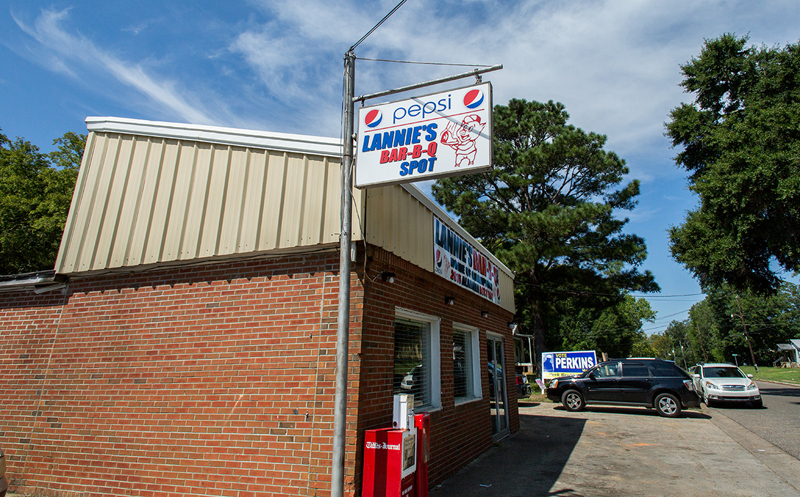
Selma lies in the Black Belt, that large swath of rich soil stretching across south-central Alabama. Once considered the “Queen City of the Black Belt,” its prime location on the Alabama River made Selma the region’s bustling commercial center, with a thriving downtown. The cotton trade initially drove the city’s economy. Craig Air Force Base, built in 1940, helped sustain local businesses in the mid-twentieth century. Selma’s black residents, though, were typically excluded from prosperity. Most lived under the poverty line, and nearly all were denied the right to vote.
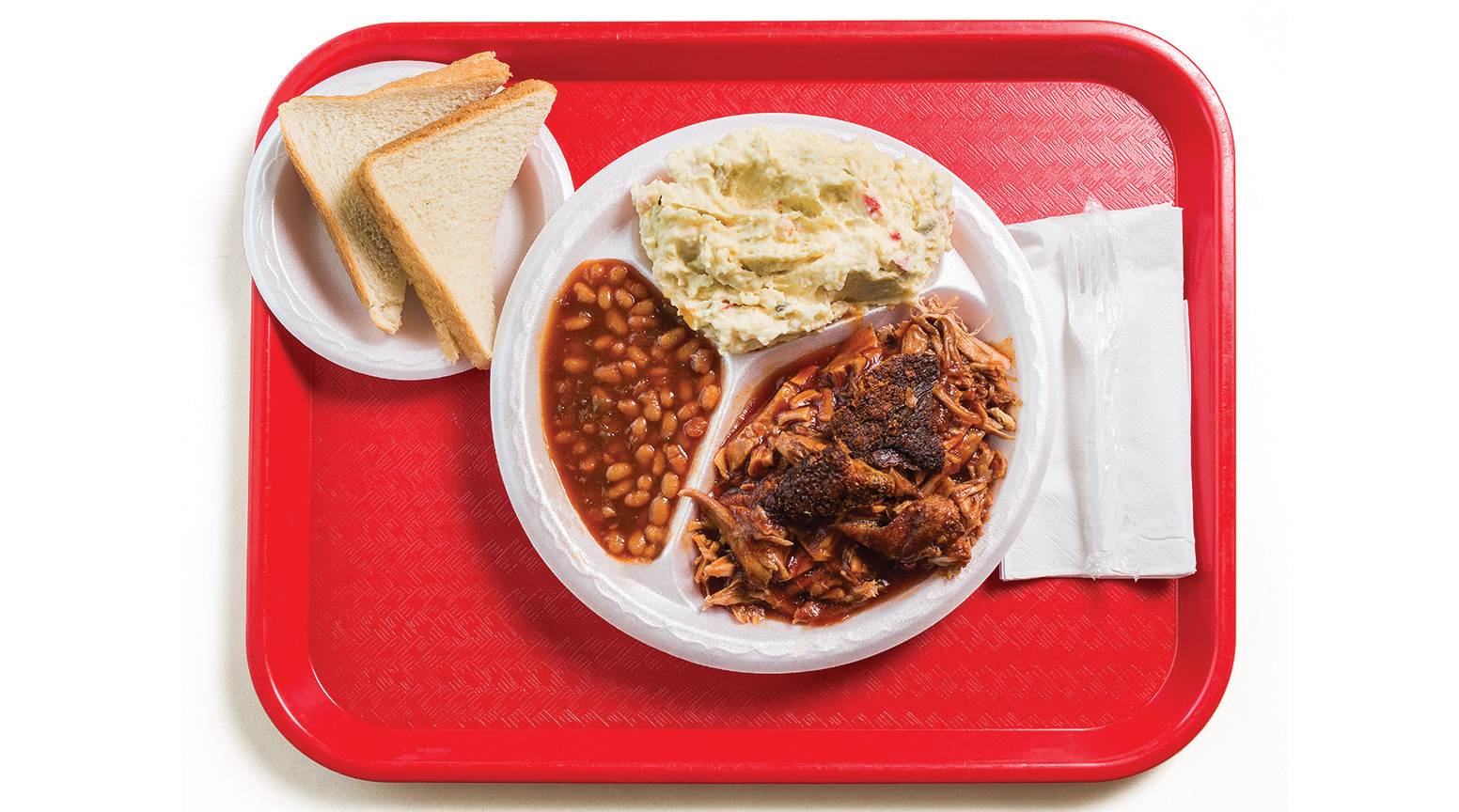

In 1963, African American attorneys, ministers, teachers, and high-school students began working with national civil rights leaders like John Lewis and Bernard Lafayette to demand voting rights in Dallas County. Hatcher remembers carrying barbecue sandwiches to activists staying in the neighborhood.
Although Lannie’s was located in East Selma, a historically black residential neighborhood, customers of all races were welcome there.
“We were the only place that wasn’t segregated,” Hatcher says. “White, black, whoever. They bought what they wanted. I don’t know of any other place that did that.” Brown Chapel A.M.E. Church, less than a mile away, acted as a headquarters for the local movement.
In January 1965, a crowd of voting-rights activists gathered at Lannie’s to celebrate the news that Dr. Martin Luther King Jr. would come to town.
In January 1965, a crowd of voting-rights activists gathered at Lannie’s to celebrate the news that Dr. Martin Luther King Jr. would come to town. By March, with the help of the Southern Christian Leadership Conference, the voting rights campaign reached a fever pitch in Selma, attracting locals like Annie Lee Cooper, a close friend of the Travis family. After standing in line for hours outside the Dallas County Courthouse to register to vote, Cooper famously got into a fight with the billy club–wielding Sheriff Jim Clark.
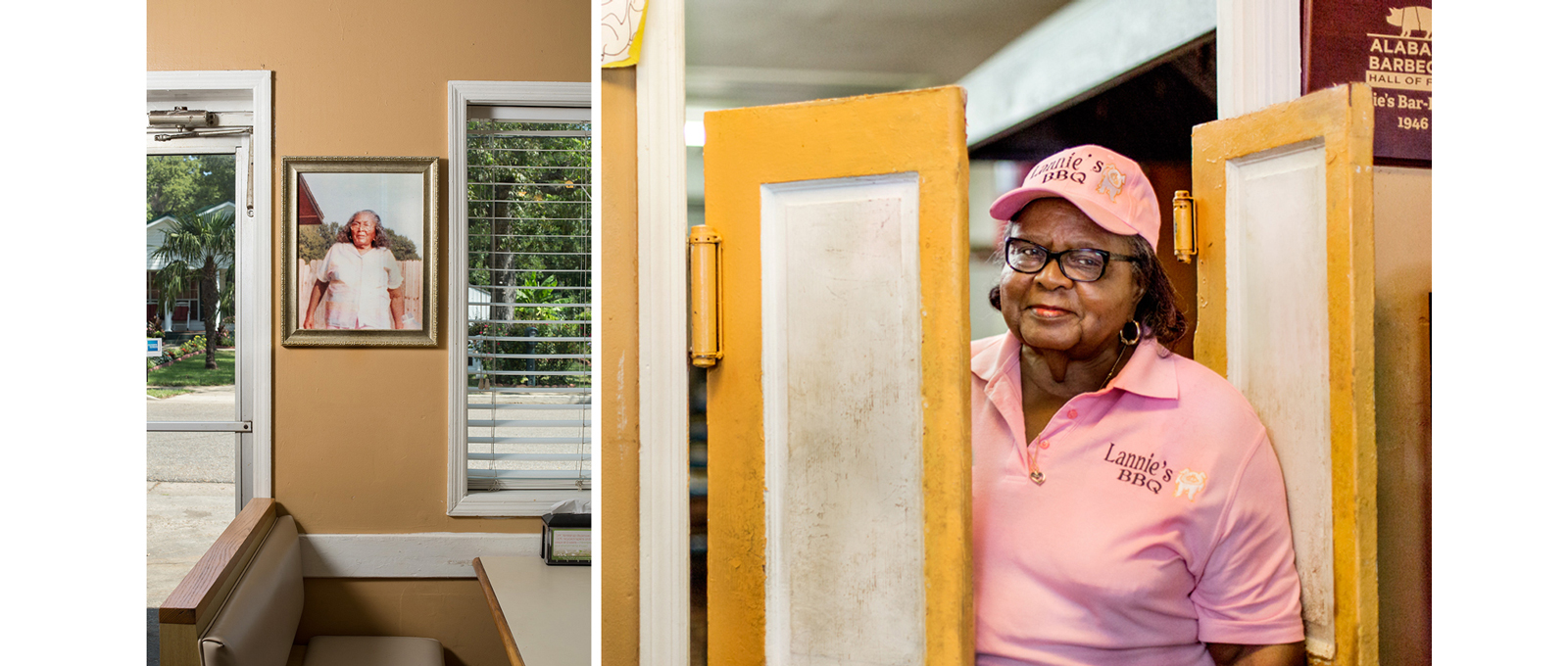
“It was tough back then in ’65. We had some mean people back then,” Hatcher says, recalling the violence that many civil rights activists suffered at the hands of police. On March 7, 1965, Alabama state troopers mercilessly beat peaceful protestors marching across the Edmund Pettus Bridge. That televised moment burned its mark on the American consciousness.
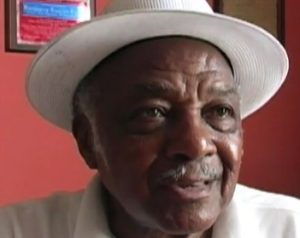
The right to vote didn’t necessarily produce better economic conditions for all the black residents of Selma or the Black Belt. Whites continued to maintain much of the power in the region. When the Air Force base closed in 1977, many local shops and restaurants shut their doors.
Lannie’s managed to stay open. Hatcher took the reins when her mother retired in 1984 and built the current brick structure a few years later. Lannie’s continued to support causes the family believed in. In 1990, when Selma High School students protested the firing of Selma’s first black school superintendent, Hatcher and her employees brought them barbecue sandwiches.
Hatcher and her employees brought protesters barbecue sandwiches.
Over the past fifty-four years, Selma has lost 30 percent of its population. Like many Southern towns that once relied primarily on agriculture, the commercial buildings on Broad Street are now vacant. Stately antebellum mansions line side streets. So do boarded-up businesses and decrepit shacks.
Still, Hatcher acknowledges that Selma has made astounding progress, even if more work is needed to achieve true equality.
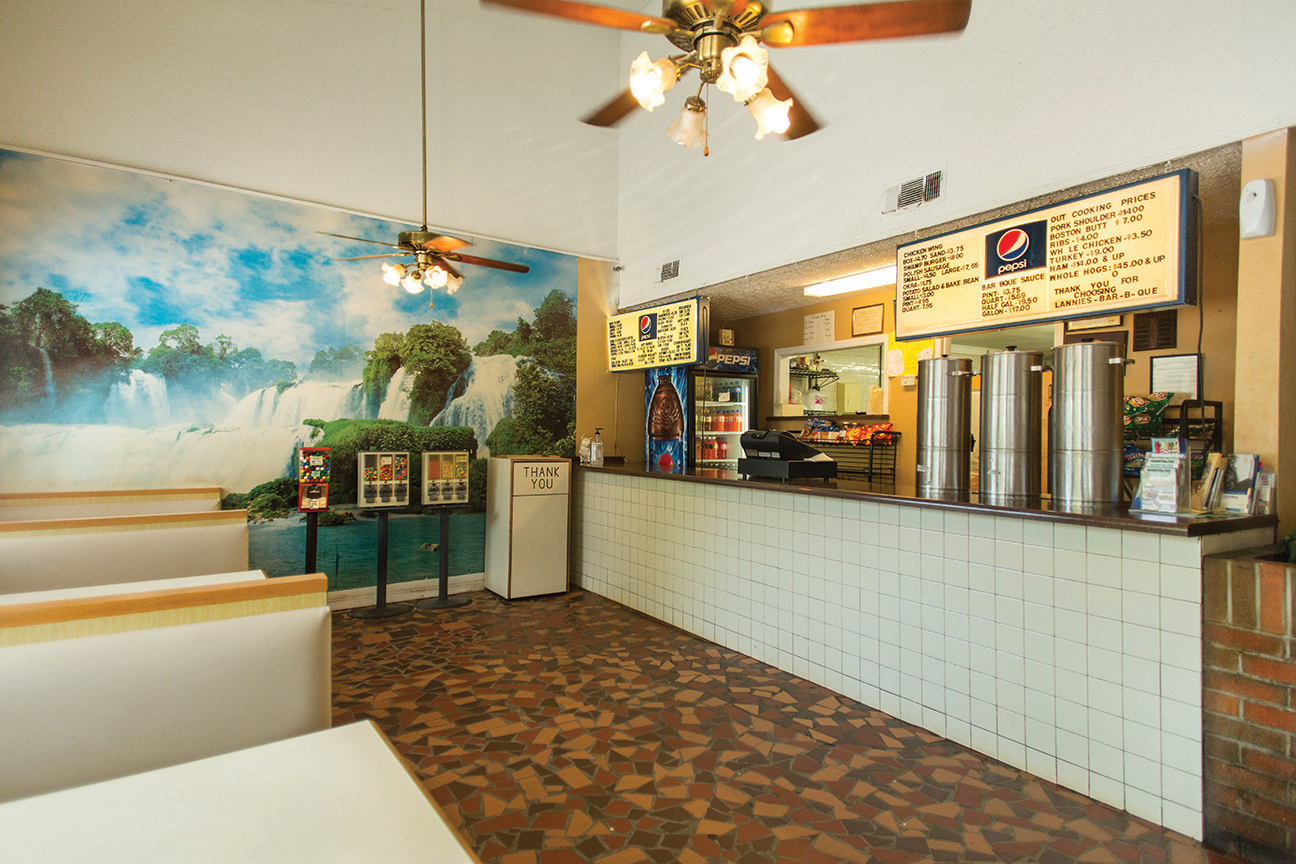
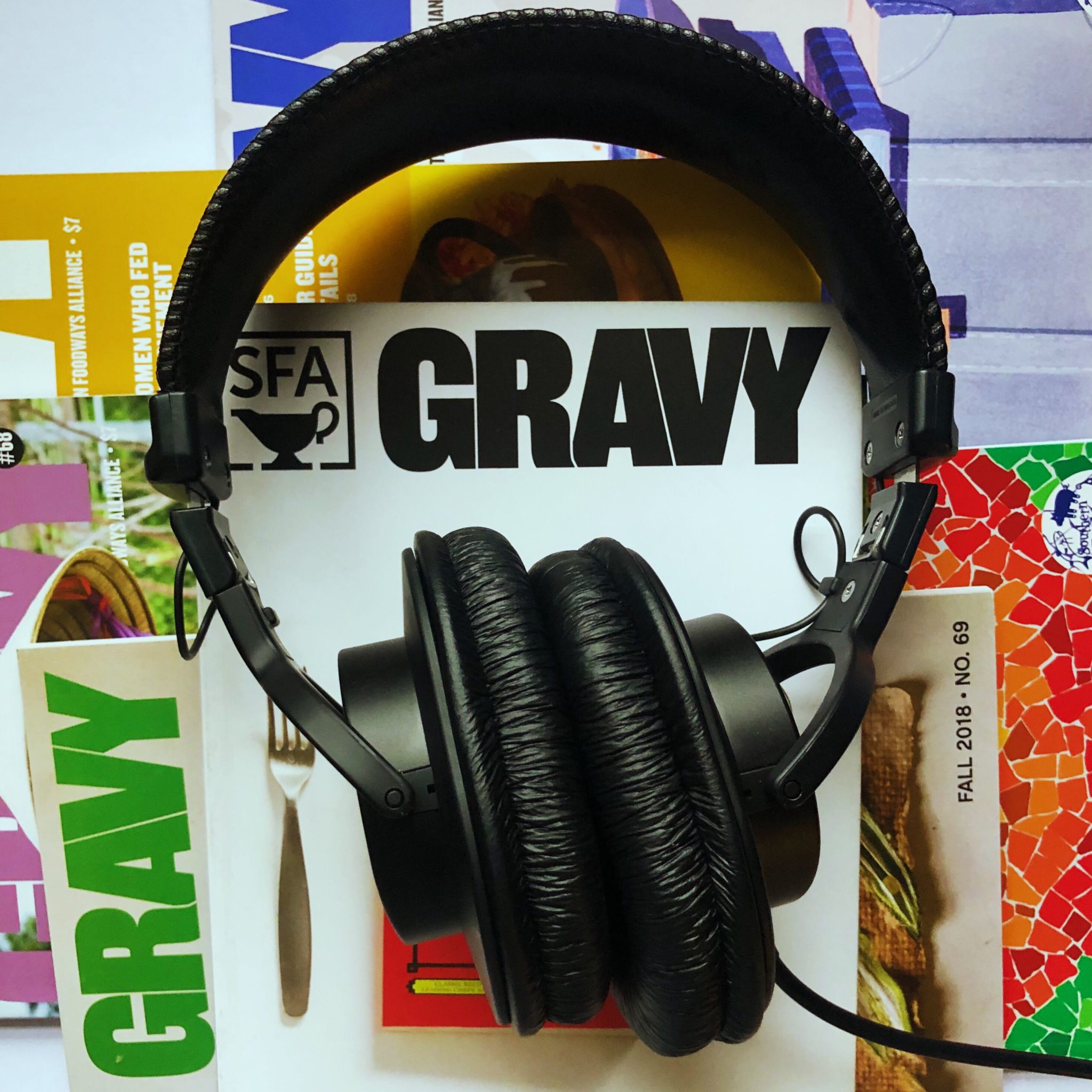
Lannie’s Bar-B-Q Spot thrives today. On weeknights, it’s one of the few non-chain businesses near downtown Selma where locals can grab a quick meal. Joanne Bland, a Selma native who marched on the bridge on Bloody Sunday back in 1965, started eating at Lannie’s as a child and still goes there regularly. To her and to many other Selmians, the Lannie’s staff is like family. “They’re loving and kind,” she says. “And I’ll tell you what, it’s always been a black and white business. It’s not a black thing—good food spans the rainbow.” And so does Lannie’s Bar-B-Q, which bridges Selma past and present.
Meredith Bethune is a writer based in Washington, D.C. She descends from a long line of Alabamians.




